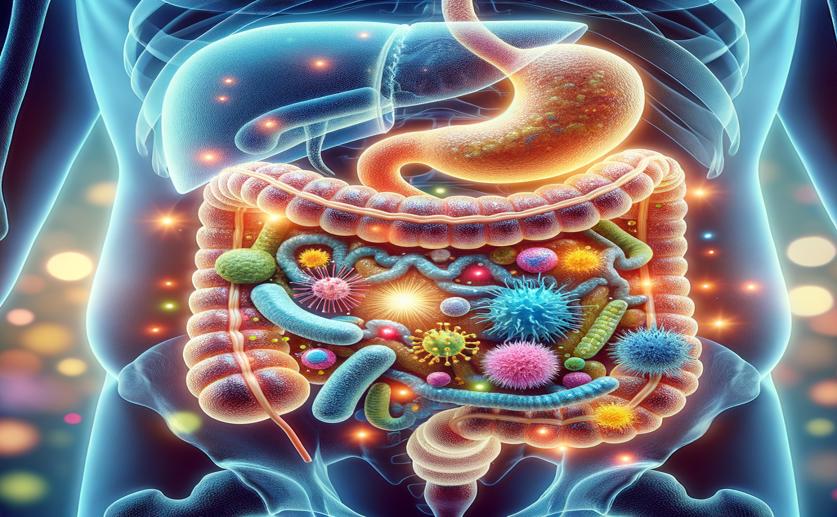
Gut Microbes Linked to Obesity Uncovered by Advanced Analysis
Greg Howard
8th April, 2024

Image Source: Natural Science News, 2024
Key Findings
- Researchers at Harbin Medical University found obesity is linked to changes in gut microbes
- Obese individuals have fewer types and numbers of gut bacteria and viruses
- Specific bacteria and viruses differ in abundance between obese and non-obese people
References
Main Study
1) Integrative metagenomic analysis reveals distinct gut microbial signatures related to obesity
Published 5th April, 2024
https://doi.org/10.1186/s12866-024-03278-5
Related Studies
2) Diversity, stability and resilience of the human gut microbiota.
3) The healthy human microbiome.
4) Gut microbiome and serum metabolome alterations in obesity and after weight-loss intervention.



 1st March, 2024 | Greg Howard
1st March, 2024 | Greg Howard